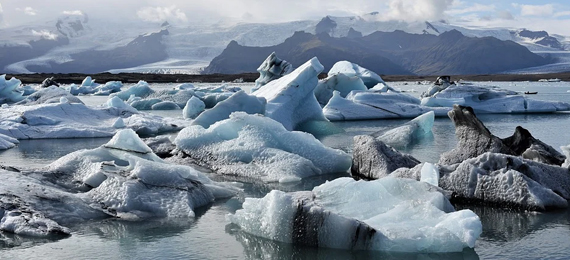
There are around 3500 species of mosquitoes across the world. The female mosquitoes have sharp needle-like mouthparts through which they can pierce the skin and suck in the blood of the host. They collect proteins and iron from the blood in order to produce eggs. Mosquitoes can feed on the blood not only from humans but also from mammals, birds, etc. While biting, the mosquitoes can transfer their saliva to the host which may contain pathogens, this way they can transmit diseases like malaria, dengue and many more from person to person. Mosquitoes mostly prefer to live in warm humid climates.
The Country Which Does Not Have Mosquitoes
Iceland, a Nordic island nation in the North Atlantic is found to be completely free of mosquitoes. Thought its neighboring countries such as Greenland, Scotland are found to have mosquitoes, Iceland is considered as one of the countries that have no mosquitoes. Midges are insects that are similar to mosquitoes which are commonly found in Iceland but are not as aggressive as mosquitoes.
Why Iceland Has No Mosquitoes?
There are many explanations why Iceland has no mosquitoes:
1. The Lifecycle of Mosquitoes Consists of Totally 3 Stages.
- A. Yes
- B. No
- Mosquitoes need stagnant water in order to lay eggs and for the eggs to develop. All mosquitoes undergo a four-stage lifecycle. The female mosquitoes lay their egg individually or in a group but only on standing water like ponds and other water bodies. Then the mosquitoes start to hatch their eggs but they can do it only at an appropriate temperature. Once they are hatched the mosquito larvae come out and develop into pupa and then into a blood-sucking mosquito. Iceland has no such stagnant water bodies that could stay long enough to support the development of the mosquitoes. This is one of the main reasons why Iceland is considered a mosquito-free country.
- In its neighboring countries such as Greenland and Scotland, the winters are continuous so, once the ice melts the mosquitoes hatch the eggs and the weather conditions allow the mosquitoes to complete its lifecycle. But in Iceland, the climatic condition is not stable even during winters. In a study, it is shown that Iceland can experience many freezes and thaws throughout the year, there can be a sudden rise in temperature which restricts the mosquitoes to complete their development cycle. This is considered another reason for Iceland to be considered a no mosquitoes country.
The Unlucky Mosquito!
A mosquito was found in the 1980s by Gisli Mar Gislason, a biologist. It was found inside an airplane from Greenland, they preserved it inside a jar of alcohol. He further mentioned that it was the only mosquito that he found in Iceland.